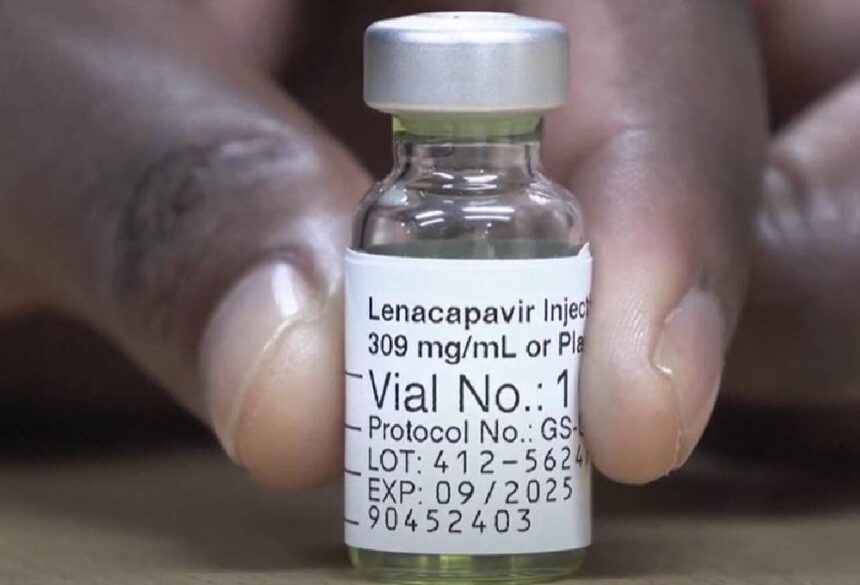South Africa Prepares for Rollout of Lenacapavir for HIV Prevention
South Africa is gearing up to become one of the first countries to receive doses of lenacapavir, the groundbreaking six-monthly injection for HIV prevention. The national health department projects that the country could begin rolling out lenacapavir as early as 2026.
“This is just a projected timeline. If we do receive lenacapavir and have all the necessary support, we hope to start by March to April 2026 – pending regulatory approval and resource availability,” says Hasina Subedar, senior technical advisor for HIV Prevention in the National Department of Health.
Studies conducted in various countries, including South Africa, have demonstrated that lenacapavir is highly effective in preventing HIV acquisition. Researchers and activists have hailed it as the potential game-changer in the fight against the HIV epidemic.
In June, the drug received approval from the U.S Food and Drug Administration, with the European Medicines Agency expected to make a final decision later this year. While the World Health Organisation is yet to give its nod, it released guidelines on the use of lenacapavir at the International AIDS Conference (IAS 2025) in Rwanda last month.
However, for the drug to be utilized in South Africa, it must first be approved by the South African Health Products Regulatory Authority (SAHPRA).
“Following SAHPRA approval, we hope that it will be evaluated for inclusion in the essential medicines list. If a drug is not on the essential medicines list, we cannot procure it,” Subedar explained during a presentation at the Southern African HIV Clinicians Society conference in Cape Town.
The department also needs to finalize national policy and implementation guidelines and secure approval from the National Health Council.
The inclusion of lenacapavir in South Africa’s HIV prevention toolkit will offer individuals at risk of HIV more choices for Pre-Exposure Prophylaxis (PrEP). Findings from Project PrEP, an implementation study by the Wits RHI, reveal a strong demand for long-acting injectable HIV prevention methods.
“We’ve learned that one product doesn’t fit all people all the time. It’s clear that no single PrEP method suits everyone’s needs all the time,” says Catherine Martin, Senior Technical Specialist at Wits RHI.
While there is a clear demand for more PrEP choices, only oral PrEP is currently included in South Africa’s essential medicines list due to cost considerations.
“There has been significant criticism over the cost of lenacapavir, which prices the drug out of reach for the countries where it’s most needed,” Subedar notes.
The Global Fund has negotiated an access agreement with Gilead Sciences to procure lenacapavir for low- and middle-income countries. However, the details of this agreement are not public.
“Hopefully, the support offered by the Global Fund will materialize so that we can implement it as soon as possible,” says Subedar.
As South Africa prepares for the potential rollout of lenacapavir, the country remains committed to expanding its HIV prevention options and reducing new infections in the fight against the epidemic. Health-e News
Are you looking for ways to improve your overall health and well-being? Look no further! We have some great tips and advice to help you live a healthier lifestyle.
1. Eat a balanced diet: It is important to fuel your body with the right nutrients by eating a variety of fruits, vegetables, whole grains, and lean proteins. Avoid processed foods and sugary drinks, as they can lead to weight gain and other health issues.
2. Exercise regularly: Physical activity is essential for maintaining a healthy weight and reducing your risk of chronic diseases. Aim to get at least 30 minutes of moderate exercise each day, such as walking, jogging, or cycling.
3. Get enough sleep: Sleep is crucial for your overall health and well-being. Aim to get 7-8 hours of quality sleep each night to help your body recharge and repair itself.
4. Stay hydrated: Drinking plenty of water is essential for your body to function properly. Aim to drink at least 8-10 glasses of water each day to stay hydrated and flush out toxins.
5. Manage stress: Chronic stress can have a negative impact on your health, so it is important to find healthy ways to manage and reduce stress. Try practicing mindfulness, meditation, or yoga to help calm your mind and body.
By following these simple tips, you can improve your overall health and well-being. Remember, small changes can make a big difference in your health. Start incorporating these healthy habits into your daily routine and watch as your health improves.







